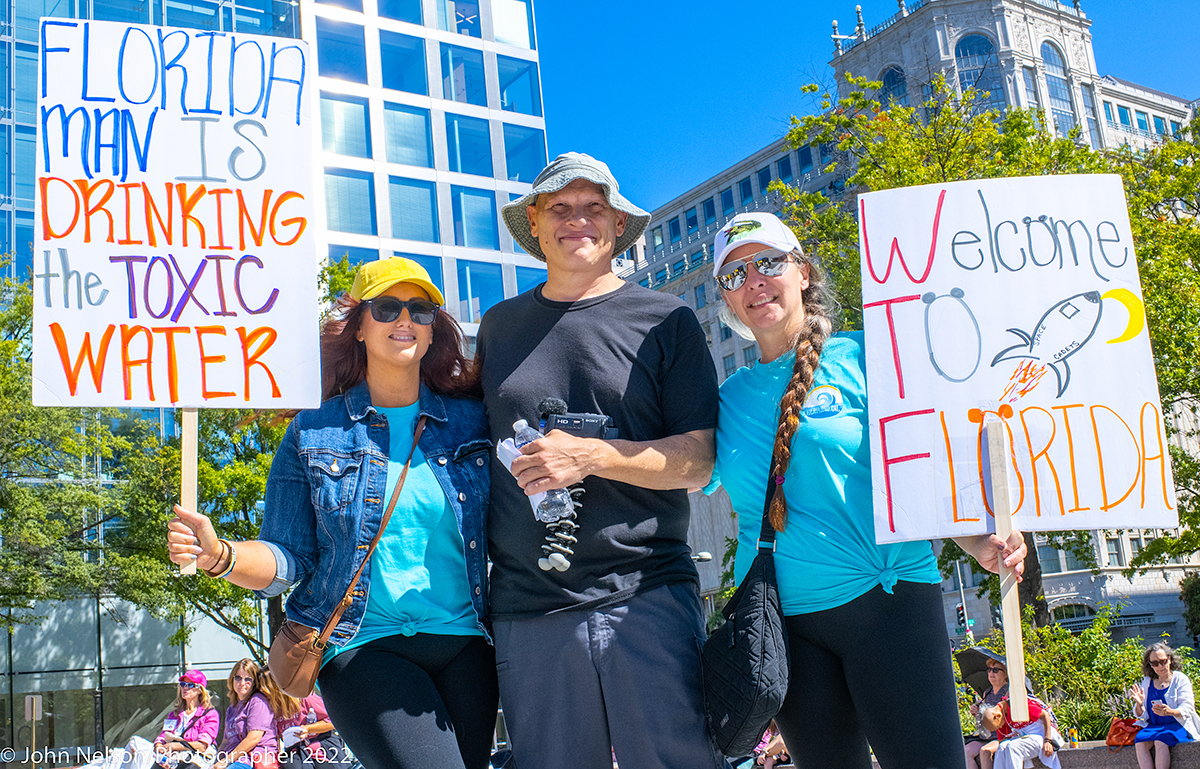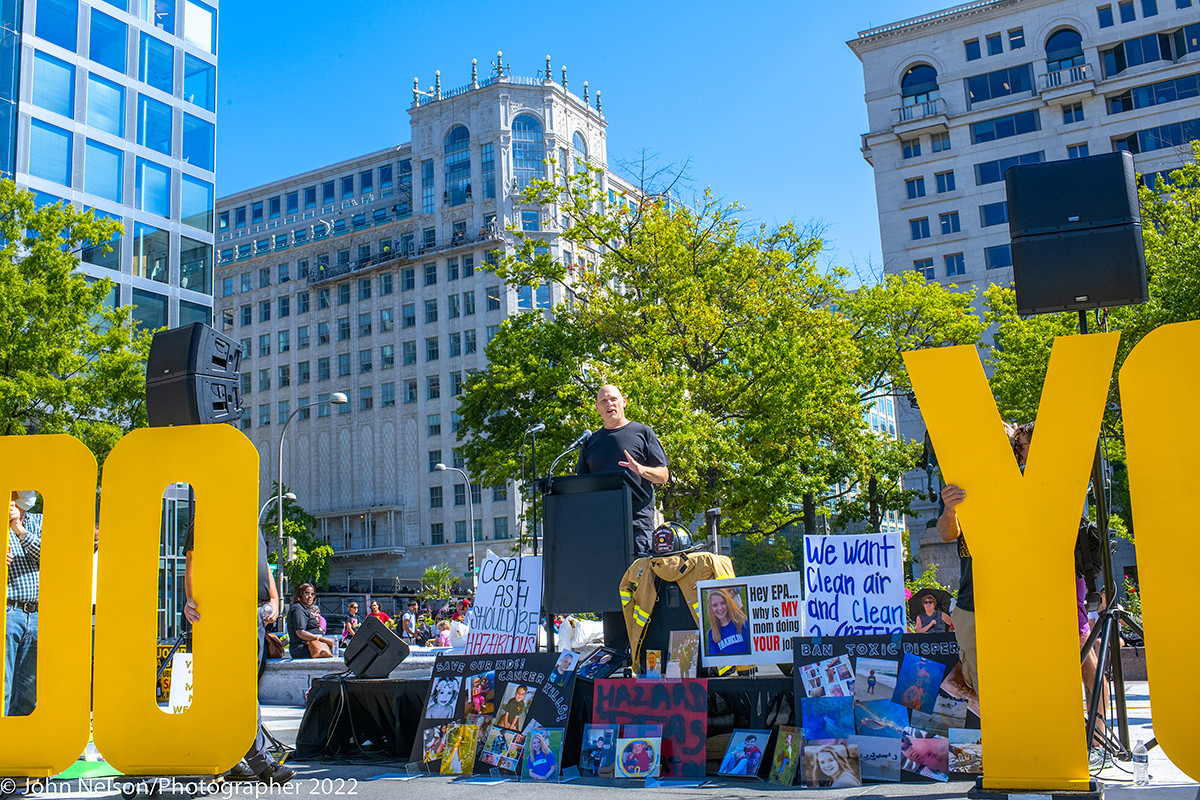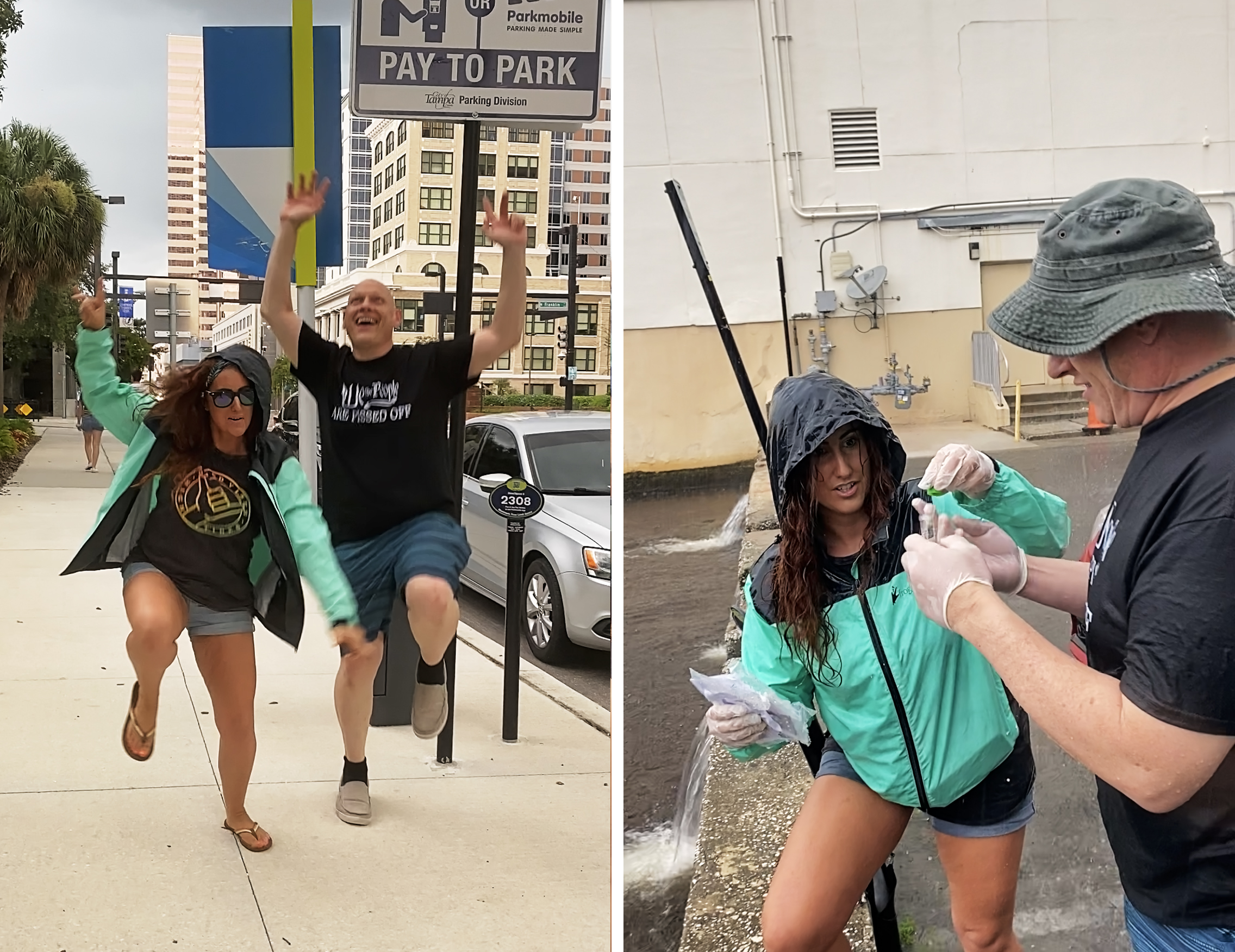From Paparazzi to Polluters
At Los Angeles International Airport, the crowds never slept. Erik E. Crown once haunted those terminals, camera poised, waiting for Paris Hilton in oversized sunglasses, Lindsay Lohan flanked by bodyguards, or Kim Kardashian breezing past in designer heels. He captured the breathless seconds when celebrity collided with public space, moments devoured by gossip sites and morning tabloids. Crown worked the circuit relentlessly, part of the paparazzi scrum that defined an era of TMZ-fueled voyeurism.
But beneath the glare of flashbulbs, something restless stirred. The skills he honed, speed, stealth, timing, an instinct for where to point the lens, would eventually redirect him into far darker territory. Today, the same man who once chased starlets through baggage claim now pursues industries that contaminate rivers, poison children, and leave scarred landscapes in their wake.
His camera no longer courts fame. It indicates power.
 |
| Erik Crown is sampling water near the phosphate mining industry headquarters in Tampa, Florida. Photo by Stel Bailey |
A Filmmaker Forged in Newsrooms and Night Shifts
Storytelling was in Crown’s blood before he knew what to call it. His father, a lead editor at ABC News in Washington, D.C., introduced him to the rhythms of video production: splicing footage, shaping narratives, revealing hidden truths. Crown learned early that editing was more than technical; it was moral, a choice about what the world would see and what it wouldn’t.
Hollywood, however, pulled him in another direction. The grind of celebrity media taught him how to move quickly in unpredictable environments, how to turn raw footage into viral content, and—most importantly—how to endure long, uncertain hours in search of the shot. Those years were his training ground. They also left him restless, hungry for a subject worthy of the skills he’d sharpened.
That subject found him in the form of a disease.
A Diagnosis That Became a Mission
Crown’s life was rerouted violently when he was diagnosed with a rare and aggressive cancer. Fourteen surgeries later, his body still carries the evidence: scars, compromised organs, and a constant fight to keep tumors at bay. Yet illness did not break him; it clarified him.
Cancer, he realized, was not simply personal misfortune. It was a lens, one that sharpened his vision of how polluted water, poisoned soil, and toxic air fuel epidemics across communities. “My cancer diagnosis was a sharpening stone for my soul,” he told a crowd in Washington, D.C. “Once I lost everything, I gained everything.”
That clarity became a mission: to expose the companies turning environmental destruction into a business model, and the government agencies, too often complicit in silence.
Into the Shadows
Crown’s work today is equal parts filmmaking and field espionage. He travels light, two bags, camera equipment, and a willingness to disappear into unfamiliar landscapes. Often alone, he goes undercover to record the hidden mechanics of environmental devastation: waste sites tucked behind tree lines, chemical runoff bleeding into rivers, trucks idling where no one is meant to see.
He is trailed as often as he is ignored. White security trucks circle him like sharks. Local officials deflect his questions with visible irritation, sometimes aggression. Yet his camera keeps rolling, capturing not just pollution but the choreography of avoidance, the ways industry and government try to shield the truth from public view.
Crown lingers in the places most reporters pass through quickly. He stays long enough to earn trust: in town halls, at kitchen tables, in late-night conversations with whistleblowers who risk livelihoods to speak. Some are sick, victims of the very industries that employed them. Others are simply unwilling to let silence continue. To them, Crown is not just a filmmaker but a witness, someone willing to put his own body on the line so their stories will not vanish.
The Cost of Bearing Witness
The dangers are not abstract. Crown has inhaled toxic dust, touched water laced with uranium, breathed air choked by cyanobacteria, and PFAS. His body reacts, swollen lymph nodes, fevers,and bone-deep fatigue. He retreats to recover, then returns, knowing each investigation could cost him both health and time.
Still, he persists. The very illness that threatens his life has become his tether to the fight. By documenting pollution’s role in cancer and disease, he insists on transforming his pain into prevention, for someone else, somewhere else.
A Global Trail of Exposures
Crown’s investigations stretch far beyond U.S. borders. He has traced the illegal pet trade deep into the Amazon rainforest, documented overfishing in South China, and filmed the systemic poisoning of American communities by corporate waste. His documentary Phosfate unmasked corruption and contamination tied to phosphate mining, while his podcast The Conservation Conversation brings together activists, scientists, and whistleblowers to build networks of resistance.
The work is as expansive as it is exhausting. Yet it is precisely this breadth, this refusal to look away, that defines his legacy.
A Voice in the Crowd
When thousands marched on the Environmental Protection Agency headquarters, demanding regulatory reform, Crown stood at Freedom Plaza to deliver a message that fused personal story with collective outrage.
“All of us are touched by cancer,” he told the gathering. “Anyone getting cancer is a tragedy, but for a child, it’s criminal. We cannot continue giving companies free rein while they leave us sick. Pain created this path, but love will determine the future.”
In that moment, his journey came full circle: from a young man chasing the fleeting shimmer of celebrity to a seasoned filmmaker chasing the far grimmer truths hidden in plain sight.
The Relentless Witness
Erik E. Crown lives in the tension between fragility and ferocity. His body is weakened, yet his mission is unwavering. He continues to slip into shadows, camera running, determined that silence will not shield those who profit from destruction.
What began as the restless chase of spectacle has become something else entirely: a pursuit of accountability, a fight for survival, not just his own, but that of ecosystems, communities, and generations to come. Crown knows the risks. He has counted the costs. And still, he refuses to look away.
"All of us are touched by cancer and have taken that pain and turned it into something positive to change the future. My cancer diagnosis was a sharpening stone for my soul; it finally gave me a mission; once I lost everything, I gained everything. As I work on these movies, I find that every state has the same problem. Everyone is being poisoned; it's a business model, not a fluke. Our voice can and will be heard. We will no longer be silent. I do believe we can fight back and change the future.I have met some of the most amazing activists worldwide, where their communities are being poisoned and not being told or allowed to make informed decisions. Anyone getting cancer is a tragedy, but for a child, it's criminal. We cannot continue this executive immunity of these companies who know they are poisoning us and continue to have free range and big bonuses while they leave us sick.Pain created this path, but love will determine the future."







